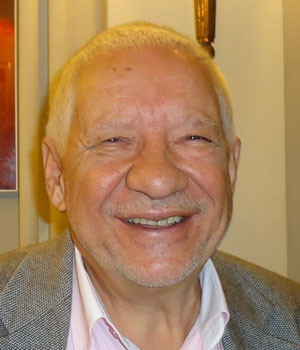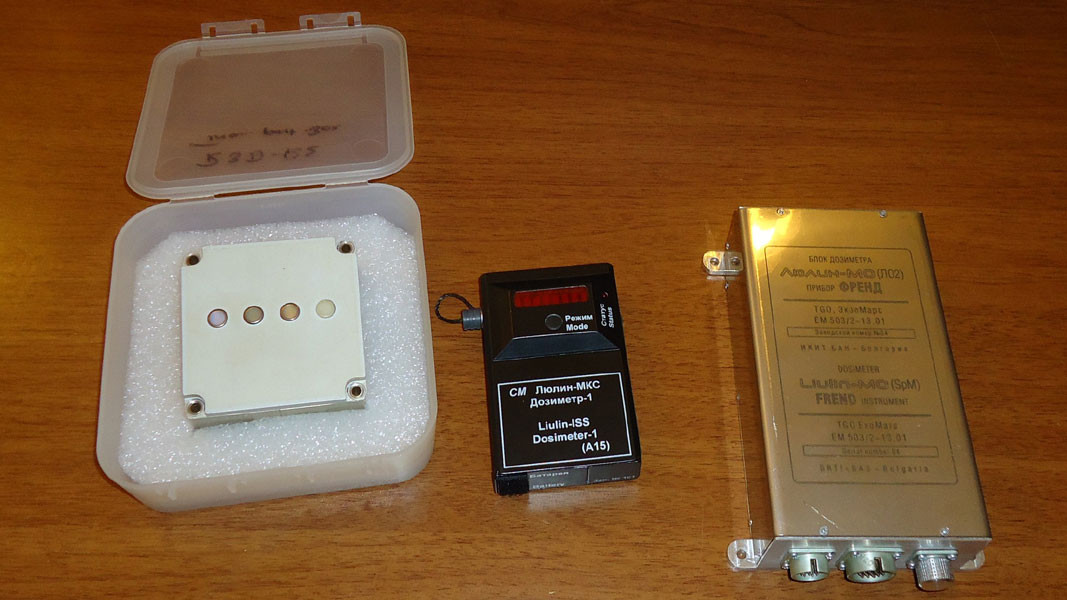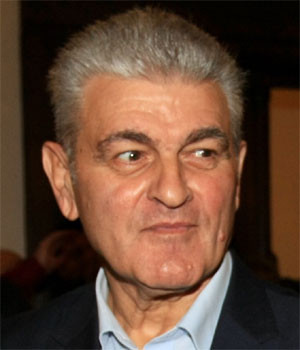The sixth country in the world to send its own astronaut into outer space and the third one to produce space food - with these words, the first Bulgarian cosmonaut summed up the results of those forty-seven hours and a minute which he spent orbiting the Earth 40 years ago.
In honour of the first Bulgarian cosmonaut Ivanov, who was launched into outer space on April 10, 1979 together with Nikolai Rukavishnikov on board the Soyuz 33 manned spacecraft, the Bulgarian Academy of Sciences organized a celebration that was attended by five cosmonauts from the Interkosmos international space program. Vladimir Remek of Czechoslovakia, Ivan Bella from Slovakia, Bertalan Farkas of Hungary, Mirosław Hermaszewski from Poland and Pavel Vinogradov from Russia were joined by the second Bulgarian astronaut Aleksandar Aleksandrov. “The young generation must become aware of what the Bulgarian space science has done”, Georgi Ivanov told reporters, giving as an example the creation of a Bulgarian appliance that was used on board spaceships, as well as new systems for two spacecraft under the program "Bulgaria 1300".
On the occasion of the 40th anniversary of the first Bulgarian cosmonaut’s flight into outer space, photographs showing the preparation of the flight and the time spent in space were put on display in the lobby of the Bulgarian Academy of Sciences. Prof. Tsvetan Dachev demonstrated spacecraft equipment produced by the Institute of Space Studies and Technologies at the Bulgarian Academy of Sciences.
 “One of the instruments flew into space from October 2014 to January 2016, and was the last one to come back from the International Space Station”, the scientist says. "The device measures the radiation that astronauts can be exposed to when they are out of the space station - then they are protected only by their spacesuits, that’s why our measurements are so important to them. In addition, the instrument is part of a platform with multiple biological, chemical and other experiments irradiated with ultraviolet and ionizing radiation. And when this platform returns to Earth, we analyse the data and figure out how much of the spores, seeds, and others have died. The second device is a model because the original device is now orbiting around Mars - it measures the cosmic radiation around the planet and the results arrive daily to us. And the third device, also a model, is currently on the International Space Station. On its display, astronauts can read what radiation is measured and if the dosage is very high - for example, for solar proton events that last for several days, they either have to hide immediately in the shelter on board or return to Earth”.
“One of the instruments flew into space from October 2014 to January 2016, and was the last one to come back from the International Space Station”, the scientist says. "The device measures the radiation that astronauts can be exposed to when they are out of the space station - then they are protected only by their spacesuits, that’s why our measurements are so important to them. In addition, the instrument is part of a platform with multiple biological, chemical and other experiments irradiated with ultraviolet and ionizing radiation. And when this platform returns to Earth, we analyse the data and figure out how much of the spores, seeds, and others have died. The second device is a model because the original device is now orbiting around Mars - it measures the cosmic radiation around the planet and the results arrive daily to us. And the third device, also a model, is currently on the International Space Station. On its display, astronauts can read what radiation is measured and if the dosage is very high - for example, for solar proton events that last for several days, they either have to hide immediately in the shelter on board or return to Earth”.
 For his part, Aleksandar Aleksandrov explained how discoveries in space science could not only make our lives more comfortable, but also make human lives longer. “Thanks to the space technologies, aircraft already reach the opportunity to develop a speed of 6 to 8 thousand km per hour – so in the future a flight from London to Australia will take only 4 hours and not as it is 16 or more hours now”, he said, adding that he is looking forward to a hopeful future, as new materials and medicines are discovered in space that could provide longevity to mankind. “The time is not too far from us when one will live much more than the current 80 or 100 years”, says the astronaut.
For his part, Aleksandar Aleksandrov explained how discoveries in space science could not only make our lives more comfortable, but also make human lives longer. “Thanks to the space technologies, aircraft already reach the opportunity to develop a speed of 6 to 8 thousand km per hour – so in the future a flight from London to Australia will take only 4 hours and not as it is 16 or more hours now”, he said, adding that he is looking forward to a hopeful future, as new materials and medicines are discovered in space that could provide longevity to mankind. “The time is not too far from us when one will live much more than the current 80 or 100 years”, says the astronaut.
Are we going to see a third Bulgarian fly in outer space in the near future?
“No, "Aleksandar Aleksandrov answers firmly. “Because we have not yet grown for this step. In order to have a third Bulgarian astronaut, we need to have a strong economy, strong participation in space programs, and above all to develop a scientific program that would have the support of the Bulgarian industry. And we are not yet at this level.”
English Rossitsa PetcovaTaekwondo athlete Kimia Alizadeh, who won a bronze medal at the 2024 Paris Olympics, supported the National Campaign Combating Violence Against and Among Children "Be Brave, Be Good" of the State Agency for Child Protection. "Bullying and..
As a rescue center for wild animals, this year too, the Sofia Zoo sheltered deer injured in accidents, storks that cannot fly and even a Nile crocodile . Among the animals housed are also confiscated valuable exotic birds such as pink flamingos and pink..
Non-governmental organizations are cleaning two of the beaches on the Southern Bulgarian Black Sea Coast. The Clean Christmas campaign under the motto "A Clean Home for the Inhabitants of the Black Sea" is being organized for the seventh..
The greater flamingo was considered an exotic species for Bulgaria, but for several years, entire colonies have chosen the lakes around..
Conservationists from Bulgaria Bird Walks are organising a birdwatching walk in Varna today to observe water fowl and forest birds. Two walks are planned..
Ruse now has the longest wooden pedestrian bridge in Bulgaria. The facility was opened at the end of 2024 in the Lipnik Forest Park...

+359 2 9336 661
